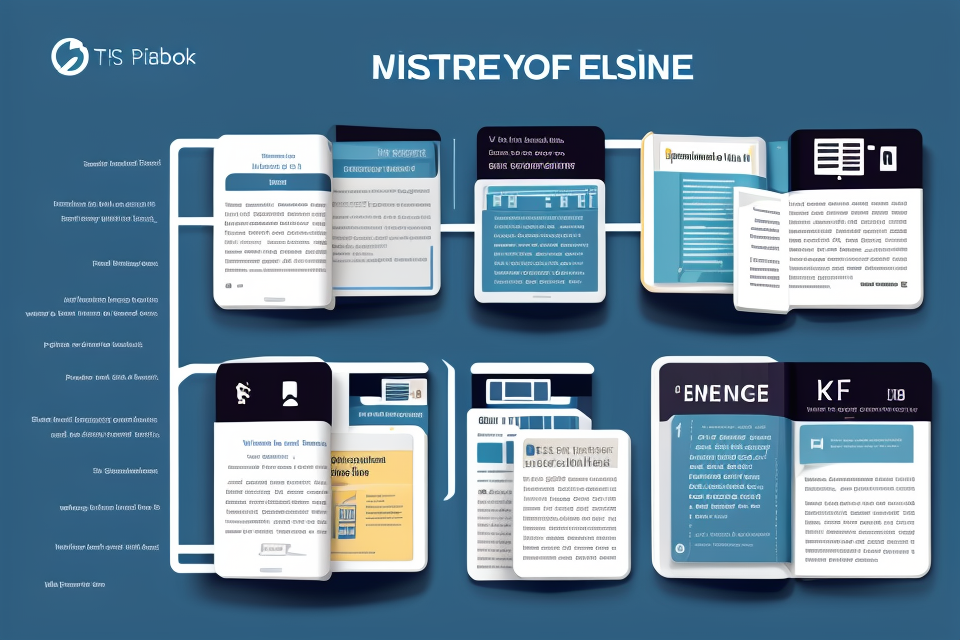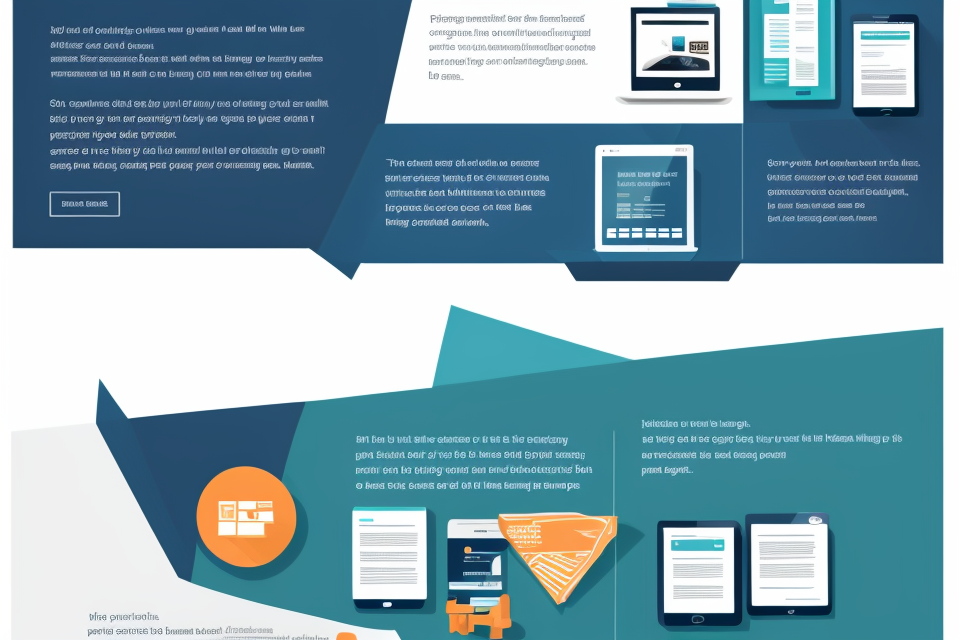
In the digital age, the popularity of eBooks has skyrocketed, providing readers with an easy and convenient way to access their favorite books. However, with the rise of new technologies and changing reading habits, one has to wonder, are eBooks still a thing? This topic has sparked much debate, with some claiming that the era of eBooks is coming to an end, while others argue that they are here to stay. In this article, we will explore both sides of the argument and attempt to answer the question, is the era of eBooks coming to an end?
No, the era of eBooks is not coming to an end. In fact, eBooks have become more popular than ever before due to the widespread availability of digital reading devices and the convenience they offer. Many people prefer eBooks because they can be downloaded instantly, are easier to carry around, and can be read in a variety of formats. Additionally, eBooks are often more affordable than their print counterparts, making them an attractive option for budget-conscious readers. While some people may still prefer the tactile experience of holding a physical book, the popularity of eBooks is only expected to continue to grow in the future.
The Rise of eBooks
The Birth of eBooks
The advent of eBooks can be traced back to the late 20th century, with the development of digital technology and the internet. The first eBook was created in 1971 by Michael S. Hart, who invented the first eBook reader, the eBookReader 1000.
However, it wasn’t until the late 1990s and early 2000s that eBooks gained mainstream popularity, thanks to the rise of eReaders such as the Amazon Kindle, Barnes & Noble Nook, and Sony Reader. These devices allowed readers to access and store thousands of eBooks in a single, portable device, making it easier than ever to carry an entire library with them wherever they went.
As the demand for eBooks grew, so did the number of publishers and retailers offering digital versions of books. Major publishers such as Penguin, HarperCollins, and Simon & Schuster began to offer eBooks alongside their print editions, while online retailers like Amazon and Barnes & Noble made it easy for readers to purchase and download eBooks directly to their eReaders or other devices.
In addition to the convenience and portability of eReaders, eBooks also offered a number of other benefits over traditional print books. They were often cheaper, more environmentally friendly, and could be easily searched and annotated. This made them a popular choice for students, researchers, and anyone looking for a more interactive reading experience.
However, as the popularity of eBooks continued to grow, so did concerns about their impact on the publishing industry and the environment. Some critics argued that the rise of eBooks could lead to a decline in literary culture and the loss of jobs in the publishing industry. Others raised concerns about the environmental impact of electronic devices and the e-waste they produce.
Despite these concerns, the popularity of eBooks continued to rise, and by the mid-2010s, they had become a significant part of the publishing industry. But as the market becomes increasingly saturated and new technologies emerge, some are beginning to wonder if the era of eBooks is coming to an end.
The Impact of eBooks on Reading Habits
- Increased accessibility
- The rise of e-readers and mobile devices has made eBooks more accessible to a wider audience.
- This has led to an increase in the number of people who read eBooks, particularly those who may not have access to physical books.
- Additionally, eBooks can be downloaded instantly, allowing readers to access their favorite books at any time and from any location.
- Environmental benefits
- The production of physical books requires significant resources, including paper, ink, and shipping.
- EBooks, on the other hand, are digital files that require less resources to produce and distribute.
- This makes eBooks a more environmentally friendly option for those who want to reduce their carbon footprint.
- Furthermore, eBooks take up less physical space, making them an attractive option for those who live in small apartments or have limited storage space.
The Fall of eBooks?
Decreased Demand for eBooks
Despite the initial excitement and growth of the eBook market, recent trends suggest a decline in its popularity. There are several factors contributing to this decline, which indicate that the era of eBooks may be coming to an end.
- The resurgence of print books
Print books have experienced a resurgence in recent years, with many readers rediscovering the joy of holding a physical book in their hands. The tactile experience, the ability to flip through pages, and the aesthetic appeal of print books have contributed to their renewed popularity. As a result, print book sales have seen a significant increase, while eBook sales have stagnated.
- Limited adoption of eReaders
Another factor contributing to the decline of eBooks is the limited adoption of eReaders. The market for these devices has largely saturated, and many potential buyers are opting for more versatile tablets and smartphones instead. This shift in consumer preferences has led to a decrease in the demand for dedicated eReaders, further impacting the eBook market.
Additionally, the convenience and accessibility of digital libraries, which were once seen as a key advantage of eBooks, have been mitigated by the widespread availability of high-speed internet and affordable digital storage. As a result, the convenience factor that once drove the adoption of eBooks has diminished, and the market has reached a plateau.
Moreover, the rise of online bookstores and subscription services has made it easier for readers to access print books at competitive prices. These services often offer discounts, bundles, and rental options, making print books more affordable and appealing to consumers. This shift in the market has contributed to the decline in eBook demand.
Furthermore, the increasing popularity of audiobooks has also played a role in the decline of eBooks. Many readers have discovered the convenience and versatility of audiobooks, which can be enjoyed during commutes, workouts, or household chores. This has led to a significant increase in audiobook sales, further impacting the eBook market.
In conclusion, the decline in demand for eBooks can be attributed to several factors, including the resurgence of print books, limited adoption of eReaders, and the availability of alternative reading formats such as audiobooks. These trends suggest that the era of eBooks may be coming to an end, and that print books are making a comeback as the preferred reading format for many readers.
Challenges Faced by eBook Publishers
- Competition from traditional publishers
Electronic book publishers face a significant challenge from traditional publishers who have embraced the digital age. Traditional publishers have vast resources, which they have leveraged to produce high-quality eBooks. As a result, many readers now have access to eBooks from reputable publishers, making it difficult for new electronic book publishers to break into the market. - Piracy and copyright issues
Piracy is a significant challenge facing eBook publishers. Many individuals are downloading eBooks illegally, which has resulted in a decline in sales. Additionally, the challenge of protecting intellectual property rights is also a significant concern for eBook publishers. The ease with which eBooks can be shared and reproduced makes it difficult for publishers to control the distribution of their content. - Difficulty in monetizing eBooks
EBooks are relatively cheap to produce and distribute, which has made it difficult for publishers to generate revenue from them. Unlike physical books, eBooks do not have the same value proposition, and the cost of producing and distributing them is much lower. This has made it difficult for eBook publishers to generate revenue, which has limited their ability to invest in new content and technology. - Decreased demand for eBooks
Recent data suggests that the demand for eBooks is declining. This is due to several factors, including the rise of audiobooks and the popularity of online content platforms. As a result, eBook publishers are struggling to maintain their market share and remain relevant in a rapidly changing digital landscape.
Alternatives to eBooks
Audiobooks
Audiobooks have gained immense popularity in recent years, with more and more people opting for them as an alternative to traditional eBooks. The accessibility of audiobooks is a major factor contributing to their growing popularity.
One of the most significant advantages of audiobooks is their accessibility for visually impaired individuals. People with visual impairments, including blindness and low vision, can access audiobooks, allowing them to enjoy reading without the need for visual content. Additionally, audiobooks provide a convenient and engaging way for busy individuals to consume content while commuting, exercising, or multitasking.
Another reason behind the rise of audiobooks is the increasing demand for convenience and ease of access. With the proliferation of smartphones and other mobile devices, people can now listen to audiobooks anytime, anywhere. Streaming services like Audible, Scribd, and Audiobooks.com have made it easier than ever to access a vast library of audiobooks, making it more convenient for readers to consume their favorite books without having to physically hold a book or eReader.
Moreover, audiobooks offer a unique and immersive experience for listeners. The combination of professional narration, sound effects, and music can create a cinematic experience that enhances the overall reading experience. This makes audiobooks an attractive option for those who prefer a more engaging and interactive way of consuming content.
However, it is important to note that the growing popularity of audiobooks does not necessarily spell the end of eBooks. Both formats have their own advantages and disadvantages, and readers often choose one format over the other based on their personal preferences and reading habits.
In conclusion, while eBooks continue to be a popular and convenient way of reading, the growing popularity of audiobooks indicates that readers are seeking new and diverse ways to consume content. As technology continues to advance and innovate, it will be interesting to see how these different formats evolve and coexist in the world of reading.
eComics and Digital Magazines
- The future of visual storytelling
- eComics are gaining popularity as a new form of storytelling that combines the immersive qualities of video with the interactivity of comics.
- With the rise of digital magazines, readers can now access a wider range of content on their tablets and smartphones, including long-form articles, infographics, and multimedia elements.
- The impact on the publishing industry
- The rise of eComics and digital magazines has forced traditional publishers to rethink their business models and adapt to the changing preferences of readers.
- As more readers turn to digital formats, publishers are exploring new ways to monetize their content, such as subscription-based models and pay-per-article pricing.
- At the same time, the emergence of eComics and digital magazines has created new opportunities for independent creators and self-publishers, who can now reach a global audience without the need for physical distribution.
The Future of eBooks
Emerging Trends in eBooks
As technology continues to advance, the world of eBooks is evolving as well. The future of eBooks is exciting, with emerging trends that promise to revolutionize the way we read and interact with books.
One of the most significant trends in eBooks is the rise of interactive eBooks. These eBooks go beyond traditional text and offer readers a more immersive and engaging experience. Interactive eBooks can include multimedia elements such as videos, audio, and interactive graphics, allowing readers to explore topics in a more dynamic and engaging way.
Another trend that is gaining momentum is the integration of embedded multimedia in eBooks. This technology allows publishers to include audio and video content within the eBook itself, making the reading experience more engaging and interactive. For example, an eBook on history could include audio clips of historical events, or a cookbook could include video tutorials on how to prepare certain dishes.
These emerging trends in eBooks are not only making the reading experience more enjoyable, but they are also opening up new possibilities for authors and publishers. With the ability to include multimedia content, authors can now provide readers with a more comprehensive and immersive experience, allowing them to tell their stories in new and exciting ways.
Overall, the future of eBooks looks bright, with emerging trends that promise to make the reading experience more engaging and interactive. As technology continues to advance, it will be exciting to see how these trends develop and shape the world of eBooks in the years to come.
The Role of eBooks in a Sustainable Future
Environmental sustainability
In recent years, there has been a growing awareness of the environmental impact of the production and disposal of books. Traditional books are printed on paper, which requires the cutting down of trees, use of ink, and energy for printing and transportation. In contrast, eBooks are digital files that can be stored and transmitted electronically, thereby reducing the need for physical resources. Studies have shown that the production of eBooks results in significantly lower greenhouse gas emissions, water usage, and waste compared to traditional books. Additionally, eBooks can be easily updated and corrected, reducing the need for multiple print runs and the associated environmental impact.
The potential for global accessibility
Another key aspect of the role of eBooks in a sustainable future is their potential for global accessibility. With the widespread availability of the internet and electronic devices, eBooks can be easily accessed and read by people all over the world. This is particularly important for individuals in developing countries who may not have access to physical bookstores or libraries. EBooks can be downloaded instantly, eliminating the need for shipping and transportation costs, and can be read on a variety of devices, including smartphones, tablets, and e-readers.
Moreover, eBooks offer the potential for increased accessibility for individuals with disabilities. For example, eBooks can be converted to audio format for individuals with visual impairments, and can be enlarged or read aloud for individuals with dyslexia or other reading difficulties.
Overall, the role of eBooks in a sustainable future is multifaceted and includes both environmental sustainability and the potential for global accessibility. As technology continues to evolve, it is likely that eBooks will play an increasingly important role in promoting sustainability and accessibility in the publishing industry.
FAQs
1. Are eBooks still a popular form of reading material?
Answer: Yes, eBooks are still a popular form of reading material. Many people find eBooks convenient because they can be accessed on a variety of devices, such as smartphones, tablets, and e-readers. Additionally, eBooks are often more affordable than physical books, and they can be downloaded instantly.
2. Is the popularity of eBooks declining?
Answer: There is no clear evidence that the popularity of eBooks is declining. In fact, according to some reports, eBook sales have remained steady or even increased in recent years. However, it is worth noting that the market for eBooks is constantly evolving, and new technologies and platforms may impact the popularity of eBooks in the future.
3. Are physical books making a comeback?
Answer: There has been some discussion about a potential resurgence in the popularity of physical books. Some people prefer the tactile experience of holding a physical book, and others enjoy the aesthetic appeal of a bookshelf filled with books. However, it is important to note that physical books and eBooks are not mutually exclusive, and many people enjoy reading both.
4. Will eBooks eventually become obsolete?
Answer: It is difficult to predict the future of eBooks with certainty. However, it is likely that eBooks will continue to be a popular form of reading material for the foreseeable future. Technological advancements may lead to new ways of accessing and reading eBooks, but the core concept of digital books is likely to remain relevant.
5. Are there any drawbacks to reading eBooks?
Answer: While eBooks have many benefits, such as convenience and affordability, there are also some potential drawbacks to reading them. Some people find that reading on a screen can be tiring and less enjoyable than reading a physical book. Additionally, eBooks do not have the same tactile or aesthetic appeal as physical books, which may be a drawback for some readers.


